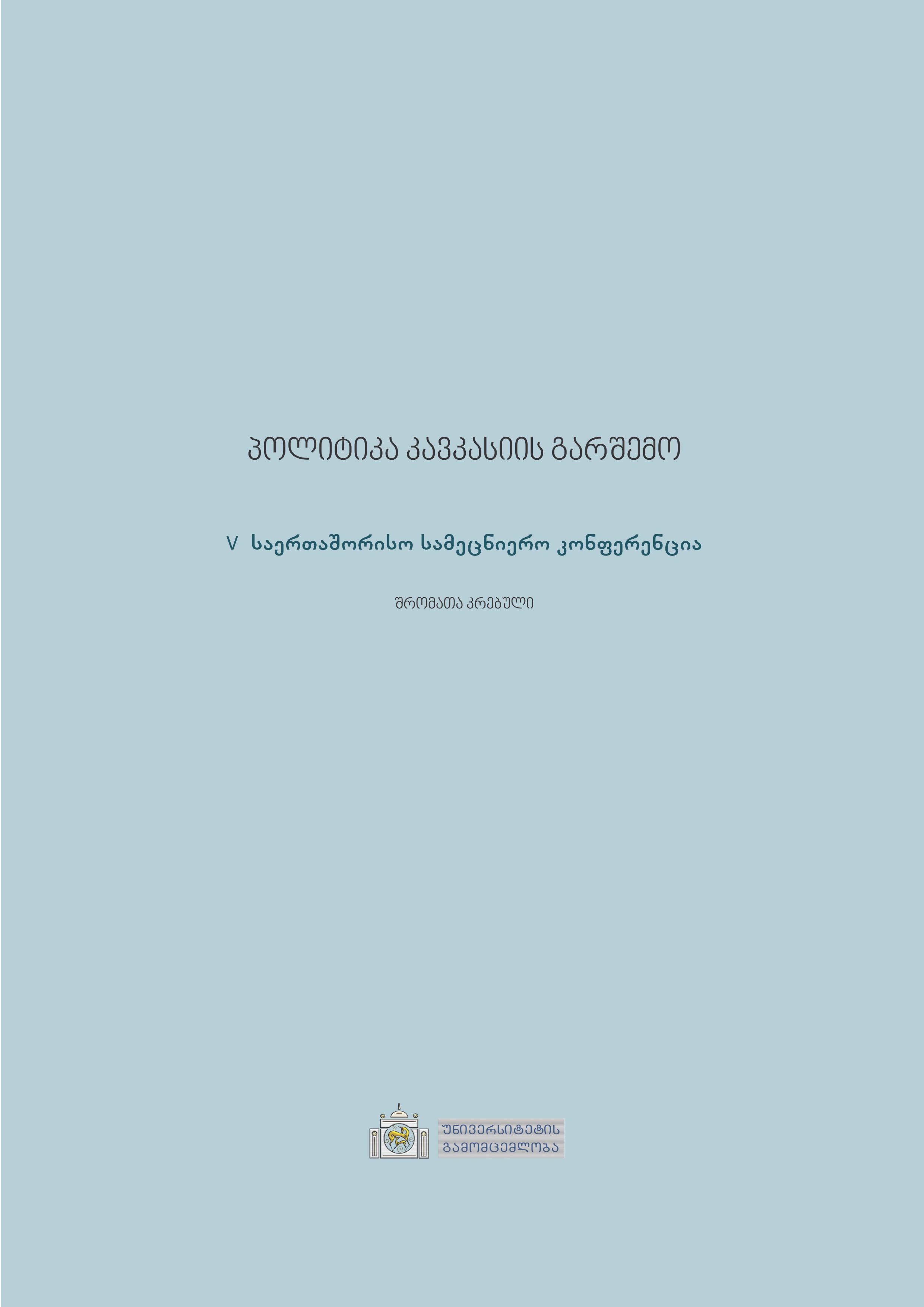Perspectives of economic collaboration between Georgia and Iran
საკვანძო სიტყვები:
Economic collaboration, Georgia-Iran relationship, perspectives of economic relationshipანოტაცია
Our report is related to the relations of the Islamic Republic of Iran with my country - The Republic of Georgia. The aim of our report is to demonstrate the position and role of the Islamic Republic of Iran in South Caucasus and Middle East region and therefore, the importance of collaboration, including the economic collaboration, between these two countries.
In the report, we will try to explain that in many cases, political processes and the geopolitical location of counties affect the establishment of collaborative relations between two countries and impede it. However, in the modern world, we cannot deny the importance of economic relations and in many cases, diplomatic and political decisions gain a positive direction as a result of the increased significance of the economic relations. For this reason, notwithstanding the fact that not only economic, but also other types of relations are not developing successfully between Georgia and Iran, we would like to emphasize the importance of these relations.
During the process of working on the report, we used the quantitative study method, namely, The Documents Analysis method.
We researched and studied the scientific literature available in Georgian language about the economic relations between the Islamic Republic of Iran and Georgia and about Iran itself. We also reviewed the materials related to this subject, which are available in international scientific bases (EBSCO, J-STORY). In addition, we reviewed press materials and information published on official web pages of the relevant authorities. On the basis of the collected data, we have tried to draw conclusions and to analyze the character of processes, which are ongoing between these two countries.
We believe that our study will modestly contribute to the expansion of studies related to the relations between Georgia and Iran and once again, it will emphasize the high political and economic benefit of close relations between these two countries.
წყაროები
გოგუა, თ., (2013, 6 სექტემბერი), ქართულ-ირანული ნახევრად გასაიდუმლოებული ურთიერთობები, http://bfm.ge/index.php?newsid=4474#.VbjWOvntmko
ექსპერტები საქართველო-ირანის ურთიერთობებს პერსპექტიულს უწოდებენ (2007, 20 ივნისი), http://www.civil.ge/geo/article.php?id=15565
ზოგიერთი ირანელისათვის საქართველო სამოთხეა (2013, 15 აპრილი), http://www.bbc.com/news/world- europe-21974676
ნატროშვილი, ნ., (2013, 2 ივლისი), სანქციები და ირანული ბიზნესი საქართველოში, http://www.netgazeti.ge/GE/105/News/21217/
საქართველო-ირანი: კითხვები მეტია, ვიდრე პასუხები (ნაწილი 1), (2010, 8 ივნისი), http://expertclub.ge/portal/cnid—4895/alias—Expertclub/lang—ka-GE/tabid—2546/default.aspx
საქართველო-ირანის ურთიერთობები – რუსეთის ნერვიულობის ახალი მიზეზი (2010, 31 მაისი), http://www. tabula.ge/ge/story/52627-saqartvelo-iranis-urtiertobebi-rusetis-nerviulobis-axali-mizezi
წიკლაური, ე., (2015, 18 აგვისტო) „ირანი ქართულ წყალს ნავთობსა და გაზში გაგვიცვლის?”, http://dl2.archiveshare.net/v2/18082015/e/a/3/e/0/ e67fca5aa91e2a3f0f20ef10a0c1824071/5f6f01b65399441811952b4ec281294e96 5a25d6/web/?archSh=1
Askari, H., (1994), “It's time to make peace with Iran", Harvard Business Review, January-February, p.50-64.
Kakachia, K., (2011) „Iran and Georgia: Genuine Partnership or Marriage of Convenience?", PONARS Eurasia PolicyMemo No. 186, September.
Katouzian, H., (2001), "The Political Economy of Iran, Since the Revolution: A Macro-Historical Analysis", Oxford Unviersity Press, p.55.-66.
Mohsen, M. & Majid M., (2010) „The relationship between oil revenues and economic growth, using threshold methods (the case of Iran)", OPEC Energy Review March, Organization of the Petroleum Exporting Countries.
SADRI, H., & NADER ENTESSAR, (2009), „Iranian-Azeri Dynamic Relations: Conflict & Cooperation in Southern Caucasus", Rivista di Studi Politici Internazionali, Nuova Serie, Vol. 76, No. 1 (301) (Gennaio-Marzo), pp. 59-79 Published by: Maria Grazia Melchionni, http://www.jstor.org/stable/42740780

